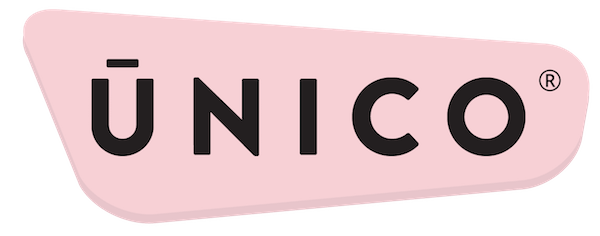There’s no debating that gut health continues to be one of the hottest topics in the health and nutrition world.
When you think of ‘gut health’, the first thing that you probably think of is probably probiotics, and all the probiotic-rich foods like yogurts, kefirs, and other products fermentation.
But today, we’re going to turn the spotlight towards prebiotics, and the crucial role that they play in your gut microbiome.

Before we dive in, here’s what you can expect to learn in this post about prebiotics:
Table of contents
Probiotics in the Spotlight
With all the buzz surrounding probiotics, it’s no wonder that prebiotics may have become an afterthought.
Probiotics tend steal the attention when it comes to these gut health conversations…
And mostly for good reason, as probiotics perform some incredible roles in our bodies.
Having healthy probiotic activity in your gut can not only support your gastrointestinal health, but may also provide additional far-reaching health benefits.
We have explored several probiotic topics extensively here on the blog, including how they help reduce bloating, which probiotic strains are best for women, and even the best time to take them.
But today, it’s the prebiotics turn to shine.
We’re going to clear up any confusion you may have around these lesser-known prebiotics.
We’ll go over:
- The important role that prebiotics play in the body
- Why they are vital to your overall health
- How you can ensure that you get enough of them in your diet
The first thing you should probably know is how prebiotics interact with probiotics.
You probably know that probiotics help to enhance your gut health, but you may not realize that prebiotics actually provide the food for the healthy bacteria in your gut.
To be more clear – they are the food that probiotics feed on!
Sounds crazy, right?
It’s true – prebiotics actually feed the good bacteria in your GI tract to help it flourish.
Let’s expand on that unique relationship a bit.
What’s the Difference Between Probiotics and Prebiotics?
Probiotics have stolen the “gastrointestinal show” so you’re probably aware that they spread happy bacteria cheer wherever they go!
These microorganisms can be found in certain foods or supplements and provide health benefits beyond that of your gut.
In fact, current research suggests that benefits of probiotics include strengthening your immune system, reduce vaginal infections, improving skin conditions like eczema, and even assisting in losing weight!1
While both probiotics and prebiotics both work together to support your health, prebiotics differ in how they accomplish this goal.
Prebiotics are high-fiber plant foods that can help promote the growth of healthy bacteria in your gut.
Your body provides a variety of enzymes to help digest various foods, however, it doesn’t have the enzymes necessary to break down prebiotics.
Therefore, these fibers stay intact until they reach your colon where they help to feed healthy gut bacteria.
The End-Goal of Prebiotics: Fatty Acids
Consider this microscopic chain reaction that happens every day within your gut microbiome.
You eat fiber-rich foods, which produce prebiotic fiber.
Probiotics feed on the prebiotics, and then output fatty acids as a byproduct.
The happy and healthy probiotics in your gut absolutely love when you eat those prebiotic-rich foods.
It’s only when you feed the helpful bacteria in your gut with fiber-rich (prebiotic) foods, that they then produce short-chain fatty acids.7
The Benefits of Short-Chain Fatty Acids
Short-chain fatty acids (SCFAs) are the main source of nutrition for the cells in your colon and can support your overall health and well-being.
Research suggests that short-chain fatty acids may help people regulate their blood sugar levels, particularly for people who are insulin resistant or diabetic.2
Additionally, short-chain fatty acids may help your weight loss efforts.
Studies have shown that short-chain fatty acids may help increase the amount of fat you burn and decrease the amount of fat you store.3
And if that weren’t enough to convince you of the benefits of short-chain fatty acids, there’s also research to suggest that they may also benefit your heart health.
Some research has found that short-chain fatty acids may decrease the risk of heart disease by reducing cholesterol production and by decreasing inflammation.4
Inflammation has been linked to several health issues and has become so scrutinized that an entire anti-inflammation diet has gained popularity.
The benefits of prebiotics are similar to those of probiotics, in that they encourage the healthy functioning of the gut that release compounds into the body.
Some of those compounds are referred to as ‘postbiotics‘, because they are the result of the healthy functioning of your gut microbiome.
In addition to releasing valuable postbiotics into the body, some studies have found that prebiotics may also improve calcium absorption within your body, enhance your immune system, and decrease the risk of allergies.5
Benefits for Your Brain
An even more fascinating potential benefit of SCFAs is its ability to impact mood, and cognitive function.
Similar to how improving vagal tone can have an impact on overall mood, and well-being, there is emerging research showing profound relationship between our gut and our brain health.
Through something called the ‘gut-brain’ axis, there appears to be a relationship between healthy gut function, and the presence (or lack of) cognitive and or neurological dysfunction.
Some studies show that people experiencing symptoms of depression have lower levels of short-chain fatty acids.
The Benefits of Prebiotics
As we learned, it’s really the end-result of healthy prebiotic and probiotic interaction (i.e. short-chain fatty acids) that provide the key health benefits.
But since that process can not happen without prebiotics, it is safe to say that the benefits of prebiotics are one and the same:
- Regulate Blood Sugar Levels
- Cardiovascular Health
- Immune System Function
- Mental Health / Cognitive
- Reduce Inflammation
- Weight Loss
By now you’re probably convinced that these prebiotics are worth prioritizing.
But how do you get more of it in your diet naturally?
Which Foods Are High in Prebiotic Fiber?
To get your prebiotic fix, and those corresponding ever-so-important short-chain fatty acids, it’s important to include a variety of fiber-rich foods in your diet.
This is because just like you, the healthy bacteria living in your gut prefer a variety of different fibrous foods to munch on.
With all of the excitement surrounding prebiotics, you’re likely chomping at the bit to know what types of foods are prebiotics and what foods are high in prebiotics.
The types of foods that are prebiotics are high-fiber foods like fruits, vegetables, beans, and whole grains.
Specific foods that are high in prebiotics include:
- Bananas (under-ripe)
- Onions
- Garlic
- Berries
- Legumes
- Beans
- Peas
- Oats
- Jerusalem artichokes
- Asparagus
- Dandelion greens
- Leeks
- Chia seeds
- Flax seeds
What are the Side Effects of Prebiotics?
You’ve probably heard the phrase, ‘too much of a good thing isn’t always a good thing’.
And this can certainly be said for eating prebiotic fiber!
Eating fiber-rich prebiotic foods may cause some mild gastrointestinal distress including bloating and gas.6
There are some ways to reduce bloating if you over-consume, but it’s probably best to just keep your intake at a reasonable amount.
Most probiotics and prebiotic supplements are safe to take and come with minimal side effects.
However, if you have a gastrointestinal disorder or are immunocompromised, a probiotic or prebiotic supplement could be dangerous.
It’s important to note that you should speak with your healthcare provider before taking any supplements to ensure their safety and benefit for you.
If you’re beginning to increase your fiber intake you may also want to consider increasing your water intake to minimize any side effects.
How Much Prebiotic Fiber Should I Eat per Day?
To support your overall health and wellbeing, it’s important to aim for the recommended amount of fiber intake each day.
For women, try to eat at least 25 grams of fiber per day, and for men 38 grams per day.
If you’re not meeting your recommended daily intake of fiber each day, you may consider taking a prebiotic supplement.
Many greens products also have valuable naturally-occurring fiber from green vegetables.
Staying hydrated, and eating adequate protein per day are two of the most important, and often over-looked part of staying healthy.
In general, prebiotic supplements will provide around 4-5 grams of fiber per day.
It’s important to begin slowly when taking a prebiotic supplement.
For example, if the manufacturer suggests 2 capsules per day, you may want to start with 1 to evaluate how your body responds.
If you don’t experience any GI side effects, you’re likely good to go.
Many probiotic supplements will contain prebiotics to further enhance gastrointestinal health and wellbeing.
These supplements are known as “synbiotic therapy” or “synbiotics.”
How to Identify Prebiotics in Supplements
When researching prebiotic supplements, you may come across some not-so-obvious terms on the label.
Common names for prebiotics may include:
- Fructans (inulin and fructooligosaccharides)
- Galactooligosaccharides (GOS)
- Oligofructose (fructose)
- Resistant starch
Selecting a supplement made from actual food may be more easily absorbed by your body.
Additionally, choosing a product that offers a variety of fibers may further support the growth of happy and healthy gut bacteria.
Summary
Probiotics and prebiotics support your body by building and sustaining the healthy bacteria in your gut. Prebiotics play a unique role as they provide food for probiotics, to help them work more effectively.
Prebiotics can be found in a variety of fiber-rich plant-based foods, or you may see them as a stand-alone supplement or within a probiotic supplement.
Either way, including prebiotics into your diet or incorporating them into your supplement regime can support your gut health and also provide other far-reaching health benefits.
Sources:
1https://www.scielo.br/j/spmj/a/SLBcWrVSThKJLKKpwDfSbpt/?lang=en
2https://pubmed.ncbi.nlm.nih.gov/24833634/
3https://pubmed.ncbi.nlm.nih.gov/23821742/
4https://pubmed.ncbi.nlm.nih.gov/16611381/
5 https://www.ncbi.nlm.nih.gov/pmc/articles/PMC6041804/
6https://pubmed.ncbi.nlm.nih.gov/15220662/
7https://www.ncbi.nlm.nih.gov/pmc/articles/PMC7005631/
Recommended Reading
- What Are Prebiotics? And do you Really Need Them? - March 21, 2023
- The 6 Key Benefits of Probiotics Beyond Digestion - August 24, 2022
